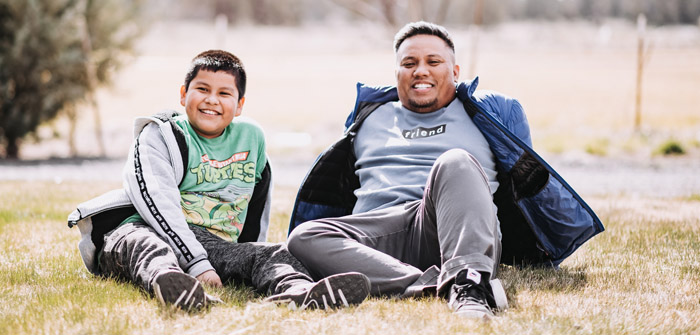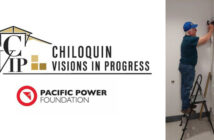(Photo | Courtesy of Friends Of The Children)
Navigating childhood trauma can be difficult, in more than one way. For parents, teachers and other adults involved in the child’s life, it can be difficult to know how or when to help, and what can even be done. For the child, it can be very difficult to communicate tough emotions in a clear and healthy way. One way of helping kids navigate trauma that has seen plenty of statistical success is a mentorship program, or simply, providing that child with a healthy role model who understands the issue well and can help the child through the trauma.
This is the basis of the nonprofit Friends Of The Children. Founded in Portland about 30 years ago by Duncan Cambpell, the nonprofit made its way to Central Oregon about five years ago thanks to Kim Hatfield, the original executive director of the Central Oregon branch. The current Executive Director, Rachel Cardwell, says that this expansion was indicative of the entire organization.
“It all started in Portland, but things expanded quite a bit in the last decade,” Cardwell said. “It felt like hyperspeed. We used to just be one chapter out of a few, but now we see new ones get added every year.”
Each chapter of Friends Of The Children operates as a mentorship program for children who are experiencing trauma in some form. A detail that sets this nonprofit apart is that each mentor is a full-time employee, and they can therefore dedicate a lot of time and energy into their position. “Each of our mentors is a full-time employee,” Cardwell said. “We make sure each one either has experience with the same type of trauma a child is going through or experience in the form of education and clinical work.”
The logic of hiring mentors who have experienced the same kind of trauma as a child in the program lies in the idea that those mentors should have an understanding of how to overcome the barriers that the trauma will present to the child. For example, a mentor who has dealt with and healed from eating disorders will likely be able to help a child navigate the issues that eating disorders can cause.
The trauma each child has can vary, but Friends Of The Children uses a system of measurement that allows them to accurately assess the needs of each child. The ACEs system (short for Adverse Childhood Experiences) was coined in a study conducted by the Centers for Disease Control and Kaiser Permanente in the mid-1990s. The goal of the study was to discover how early-childhood trauma affected certain outcomes in adult life, and researchers found a direct link between childhood trauma and adult onset of chronic disease, incarceration, and employment challenges.
Things like having divorced parents, experiencing any kind of abuse or neglect, growing up food insecure, a family member struggling with substance abuse and more are all forms of ACEs. The more ACEs someone has, the more likely they are to experience adverse effects in their adult life, like incarceration, substance abuse, abusive relationships and more.
“The average child in our program has about six ACEs in their life, before kindergarten,” Cardwell said. “The goal of our mentors is to provide that child with a consistent good role model so that the child can grow up to become a healthy adult.”
The reason this is so important is related to the concept of generational trauma. A traumatized person, or someone with a few ACEs, is far more likely to traumatize their children, as well. This creates a cycle where trauma creates more trauma, which is also why Friends Of The Children aims to work with each child until they become an adult and graduate high school.
The results of the program speak for themselves. Eighty-three percent of participants graduate high school, even when 50 percent of their parents did not. Ninety-three percent stay away from the juvenile justice system, even though 60 percent of their parents were impacted by the legal system. Ninety-eight percent waited until after their teen years to have kids, despite the fact that 85 percent of them were raised by teen parents. In many measurable ways, Friends Of This Kids breaks the cycle of trauma.
Aside from improving the lives of many people, there is an economic component to this nonprofit that should interest community members. The Harvard Business School Association of Oregon found that each child who graduates high school after entering the program saves the state close to $900,000. Social programs cost money to upkeep, and the success of the nonprofit program makes graduates so much less likely to rely on social programs that the state ends up saving money in the long run.
To support a statistical force for good like Friends Of The Children, consider stopping by their November 4 fundraiser, the “Friendraiser,” and consider getting involved by checking out their website.





